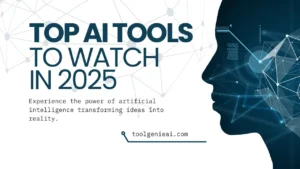June 11, 2025 – Silicon Valley, CA
In what is being called one of the boldest and most strategic moves in the tech industry’s ongoing artificial intelligence (AI) race, Meta Platforms Inc. is investing a staggering $14.8 billion to acquire a 49% non-controlling stake in Scale AI, a leading startup in AI data infrastructure. The investment marks the largest external deal in Meta’s history, surpassing even its landmark $19 billion WhatsApp acquisition in 2014.
This deal signals CEO Mark Zuckerberg’s aggressive pivot toward dominating the next phase of AI development, as competitors like OpenAI, Google, and Anthropic race ahead.
🧠 Why Scale AI? The Critical Role of High-Quality Data
At the heart of Meta’s investment is a recognition of a crucial truth in the AI world: models are only as powerful as the data they are trained on. Scale AI, founded in 2016 by Alexandr Wang, has become an indispensable player by supplying structured, human-labeled datasets to companies developing cutting-edge models.
Scale’s data labeling solutions support training for autonomous vehicles, defense applications, and, most notably, large language models (LLMs). Its customers reportedly include OpenAI, Amazon, and even the U.S. Department of Defense.
As LLMs like ChatGPT, Claude, Gemini, and Meta’s own LLaMA evolve, high-quality, context-rich training data is emerging as the rarest and most valuable resource—and Scale AI has positioned itself as the gatekeeper.
🔍 Deal Breakdown: The Stakes, Structure, and Strategy
🔸 Deal Value & Equity Stake
Meta is expected to invest $14.8 billion for a 49% non-voting stake in Scale AI. This values Scale at nearly $30 billion, making it one of the most valuable AI infrastructure companies globally.
🔸 No Control, But Deep Influence
To avoid regulatory hurdles, Meta opted for a non-controlling minority stake. However, it’s widely understood that the partnership includes strategic collaboration, especially in building Meta’s next-gen foundation models.
🔸 Strategic Talent Acquisition
Equally important is the transfer of talent. Scale AI’s founder and CEO, Alexandr Wang, is expected to lead a new Meta AI research division focused on “superintelligence.” Alongside him, a significant chunk of Scale’s top AI and data engineering talent will reportedly migrate to Meta’s Menlo Park campus.
⚔️ Context: Meta’s AI Struggles and Competitors’ Head Start
Despite significant investment, Meta has struggled to gain traction in foundational AI models. Its LLaMA 2 and LLaMA 3 models were respectable but failed to capture mass developer adoption like OpenAI’s GPT-4 or Anthropic’s Claude 3. Meta’s internal “Behemoth” model, hyped as a GPT-4+ rival, has faced repeated delays.
Meanwhile, rivals have taken commanding leads:
| Company | Major AI Investment | Core Partnership |
|---|---|---|
| Microsoft | $13B+ | OpenAI |
| Amazon | $8B | Anthropic |
| $3B | Anthropic | |
| Apple | Quietly developing Apple GPT | Internal |
Zuckerberg’s frustrations reportedly reached a boiling point earlier this year, with insiders describing a sense of urgency within Meta to make a bold, course-altering move in the AI space.
🚀 The Superintelligence Lab: Meta’s AGI Moonshot
Perhaps the most important part of this deal is Meta’s creation of a new “superintelligence” research lab, to be led by Wang. This new division is expected to focus exclusively on:
- Artificial General Intelligence (AGI): AI that can perform any intellectual task a human can.
- Long-term AI safety: Ensuring responsible deployment of powerful systems.
- Next-gen data acquisition: Building the world’s most robust dataset engine.
This lab will be Meta’s answer to OpenAI’s Superalignment and DeepMind’s Gemini team, positioning the company to finally play a leading role in the race toward AGI.
🧾 Regulatory Implications: Can Meta Avoid Scrutiny?
Meta has structured the deal to avoid a controlling interest, likely to sidestep antitrust investigations. But that doesn’t mean the regulatory battle is over. U.S. lawmakers have increasingly raised alarms about the consolidation of AI talent and compute power among a handful of Big Tech firms.
Given that
- Meta already controls major social platforms (Facebook, Instagram, Threads).
- It owns a VR ecosystem (Quest),
- It’s now deeply embedded in AI infrastructure…
…it is likely that this deal will attract scrutiny from the FTC and DOJ. Especially with the inclusion of a sensitive national asset like Scale AI, which holds government defense contracts.
💸 The Bigger Picture: Meta’s Financial Muscle Behind the Bet
This year, Meta has committed to $60–65 billion in capital expenditures, mostly on:
- AI supercomputers and data centers
- Advanced GPU clusters (NVIDIA H100 and Blackwell chips)
- Internal R&D into multimodal models
Meta’s financial position is robust, fueled by its advertising juggernaut. With strong margins from Facebook and Instagram, the company has ample cash to fund high-risk, long-term AI bets—something smaller players like Mistral or Cohere can’t easily match.
🗣️ Expert Commentary: Why the Deal Matters
“Zuckerberg just took the gloves off,” says Andrej Karpathy, former Tesla AI head. “This isn’t about catching up anymore—it’s about making Meta indispensable in the AI ecosystem.”
“Scale AI’s influence is deeper than most realize,” notes Sarah Guo, venture capitalist at Conviction. “They’re quietly powering nearly every top-tier model. Meta’s move gives it a backstage pass to the foundation of AI.”
🔮 What Happens Next?
Over the next 12–18 months, expect Meta to:
- Release the Behemoth model, possibly co-trained with Scale AI’s data.
- Expand the AI developer ecosystem around its infrastructure (Llama models, PyTorch).
- Launch AGI-related research papers under Alexandr Wang’s leadership.
- Face regulatory questioning, especially concerning national security and data ethics.
🧠 Final Thoughts: A High-Stakes Gamble That Could Change Everything
This investment marks a defining moment for Meta. By fusing its compute power and platform scale with Scale AI’s goldmine of data and elite talent, Meta is repositioning itself as a foundational force in the AI era—not just a follower.
But this move is not without risk. If the partnership fails to produce a truly competitive model—or if regulatory challenges mount—Meta could face billions in write-downs and reputational setbacks.
Still, for Mark Zuckerberg, it seems the question is no longer whether AI is the future. It’s how big you’re willing to bet to own it.
Sources:
- CNBC: Zuckerberg makes Meta’s biggest bet on AI with $14 billion Scale AI deal
- [The Verge, The Information, Reuters, Washington Post—June 2025 AI coverage]




